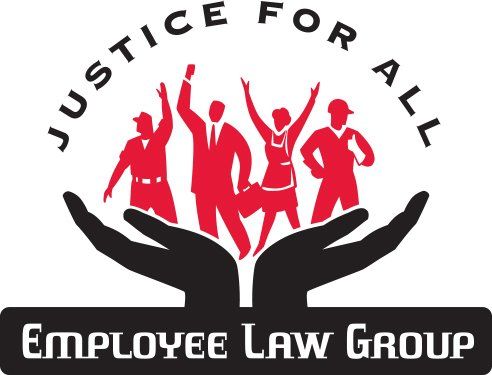- WHO WE HELP
- ABOUT
- GET STARTED
-
CASES WE TAKE
- UNPAID WAGES
- CLASS ACTION SUITS
- FAMILY & MEDICAL LEAVE
- PREGNANCY DISABILITY LEAVE
- HARASSMENT
- NEGOTIATION OF SEVERANCE
- EMPLOYMENT CONTRACT NEGOTIATION
- WORKPLACE CLOSURES
- DEFAMATION OF CHARACTER
- BAD REFERENCES
- EXPENSE REIMBURSEMENT
- ILLEGAL DEDUCTIONS FROM WAGES
- MINIMUM WAGE VIOLATIONS
- UNPAID OVERTIME
- UNPAID COMMISSIONS
- WRONGFUL TERMINATION
- SEXUAL HARASSMENT
- LOS ANGELES EMPLOYMENT LAWYER
- LOS ANGELES DISCRIMINATION LAWYER
- WHISTLEBLOWER RETALIATION
- FAQs
- BLOG
- CONTACT
California’s 2024 Employment Law Update: A Guide to Reproductive Loss Leave Benefits
As a worker in California, you may not yet be familiar with a new law governing leave for reproductive loss. Here’s what you should know about this new policy. Since between 10 and 20 percent of known pregnancies end in spontaneous miscarriage, this law may affect your household. And it applies to other reproductive losses too. Read on to learn more.
California Senate Bill 848: What the New Law Says About Reproductive Leave Loss
Last October, Governor Gavin Newsom signed Senate Bill 848 (aka SB 848) into law. The new law requires employers in California to give up to five days off to employees suffering a reproductive loss. This law complements existing bereavement law for the death of a family member.
What Incidents Are “Triggering Events” Allowing for the Use of Reproductive Loss Leave?
So, what is considered a reproductive loss? Any of these events:
- Miscarriage — fetal loss before the 20th week of pregnancy
- Stillbirth — fetal loss after 20 weeks of pregnancy
- Failed adoption — an adoption that is contested and not finalized or an adoption agreement that is dissolved or breached by either the birth mother or a legal guardian for the child
- Failed surrogacy — a failed embryo transfer to the surrogate or a dissolved or breached surrogacy agreement
- Unsuccessful assisted reproduction — an unsuccessful procedure, such as in vitro fertilization (IVF) or intrauterine insemination (IUI), as well as unsuccessful embryo transfer or gamete/embryo donation
What Is Considered a “Covered Employer” and “Eligible Employee?”
An “employer” that must provide reproductive loss leave according to this law is any public employer or a private employer with five or more employees.
A qualifying employee is one who has been with their employer for 30 days or longer.
Frequently Asked Questions About Reproductive Loss Leave
Here are some common questions workers have about the new California reproductive loss leave policy:
Who is eligible to take reproductive loss leave?
Any would-be parent is allowed to take reproductive loss leave. That means single parents or couples of any sex or gender.
Many LGBTQ couples encounter problems with conception, pregnancy, and adoption. They are equally supported under the law, which doesn’t discriminate based on orientation.
How long do you have to use the leave?
Reproductive loss leave must be taken within three months of the day of a loss event or the final day of a multi-day loss event.
Employees may take up to five days of leave. They may take it all at once, or they may take the leave on nonconsecutive days.
There are several other leave programs that let employees take time off after a reproductive loss:
If an employee elects to take reproductive loss leave under one of these entitlements, they are allowed to take their leave under SB 848 within three months of completing the other leave.
That means you could take leave allowed under one of the three programs above, plus leave covered by California’s new law in SB 848. For people who suffered a reproductive loss later in 2023, they may still be eligible for up to five days of reproductive loss leave in 2024.
What if you have multiple reproductive loss events?
It’s not an uncommon occurrence for someone to have multiple reproductive losses within a year. Therefore, up to four reproductive loss leaves may be taken in a 12-month period for a total of 20 days off.
Is reproductive loss leave compensated time off?
Compensation for reproductive leave loss depends on the employer. It’s not required for the employer to compensate their employee for time off. If there is no official policy to compensate workers for reproductive loss leave, they must take it unpaid.
However, employees may use other paid time off (PTO) to be compensated during their reproductive loss leave, such as vacation days, personal leave, or sick time.
Do you have to provide documentation proving the need for reproductive loss leave?
There is no requirement for the employee to provide documentation stating why they are requesting reproductive loss leave. Your employer should not be asking for a doctor’s note or copies of medical records. Your word is enough to take the leave.
What are employer requirements regarding privacy?
Employers are required to maintain strict confidentiality around reproductive loss leave. They are not permitted to divulge to other parties why someone is taking this leave or discuss the details of the employee’s loss. If the employee wishes to share the event with coworkers, that’s up to them.
Your Employer Is Not Granting Your Reproductive Loss Leave — Now What? An Employment Attorney Can Advise You
California is a state at the forefront of employee protections, including leave for reproductive loss. But in spite of these protections, some employers still don’t give employees the time off that is required by law. Or they give them the five mandatory days off, but they won’t let them use other paid time off to cover the loss of compensation.
Has this happened to you? Because the law is so new, sometimes talking to the employer can help, as they may not be up-to-date with SB 848. This is especially true of small businesses with no human resources (HR) department.
But if your employer is a scofflaw, you have a different problem on your hands. Partnering with an employment lawyer like Employee Law Group can help.
An employment attorney can help you determine if your employer is violating the law. Sadly, we often find that denying rightful leave is not the only employer violation. Often this behavior goes hand in hand with other labor law violations, like discrimination, harassment, and wage theft.
Your lawyer can also advise you on what to do next. Occasionally, a stern letter to the employer outlining the legal and financial consequences of their violations can get them to do the right thing.
Other times, the employee may want to file an official complaint and begin an investigation. We frequently help employees who decide to file a lawsuit by assisting them with all the paperwork, putting together a case, and representing them in court.
Have you been denied reproductive loss leave that you’re entitled to? An exploratory consultation with Employee Law Group is completely free to see what your options are. Call us at 310-407-7358 to set up an appointment, or reach out online today to let us know how we can help.









EMPLOYEE LAW GROUP | JUSTICE FOR ALL
21250 Hawthorne Blvd. Suite 500, Torrance CA, 90503
500 Capitol Mall, Suite 2350, Sacramento, CA, 95814

